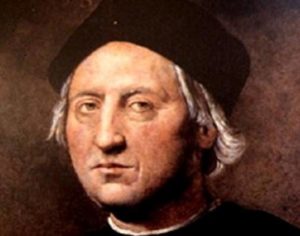
The second Monday in October is Columbus Day in the U.S., except in South Dakota, where it is officially Native American Day.
The choice of what to call this day is interesting. Is it about Columbus, the guy who sailed the ocean blue, or the Native Americans (and the Tainos, to be specific), who had discovered this land long before Columbus was tall enough to hoist a sail.
In their book, Rethinking Columbus, Bill Bigelow and Bob Peterson encourage us to revisit our assumptions about history. They are on a mission to write “a true people’s history”. Both the characters in the history and the ones telling the history matter. The tales they tell and the words they use to tell those tales will differ. At times drastically.
Columbus Day. Native American Day. Explorations Day. All refer to the same day. Each offers a different version of history.
Which version of history do your words tell? (Hint: This matters to organizational and personal histories, not just history as it relates to the second Monday in October.)
